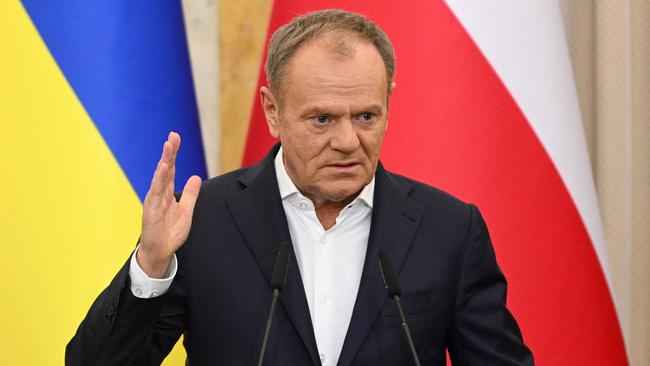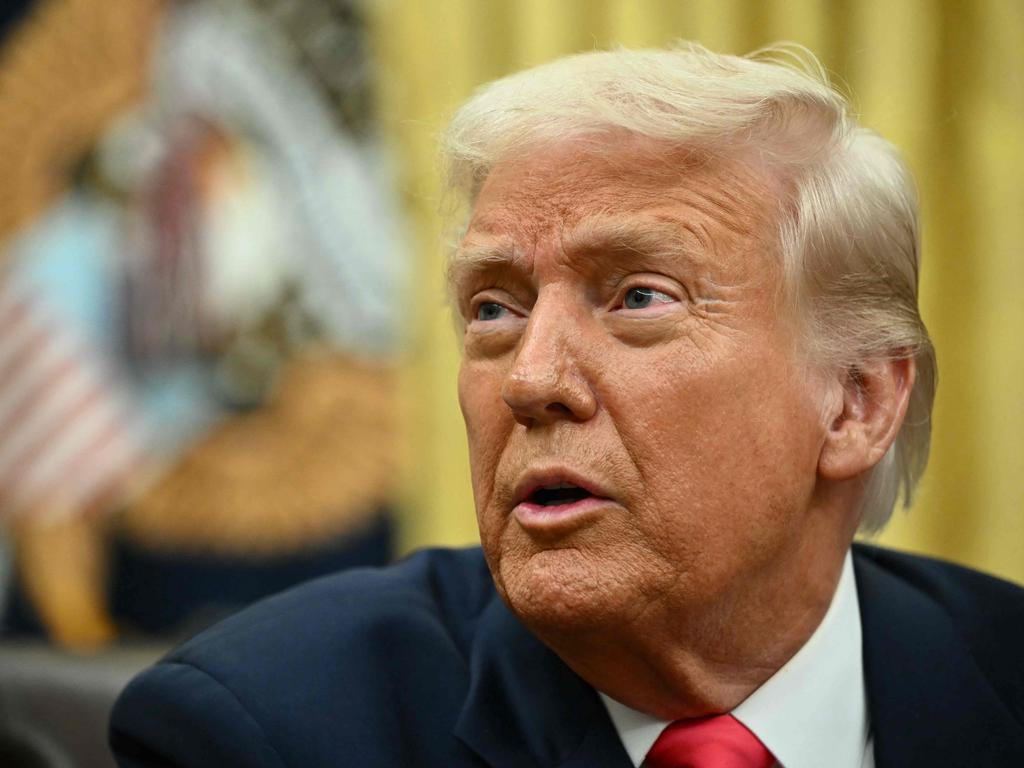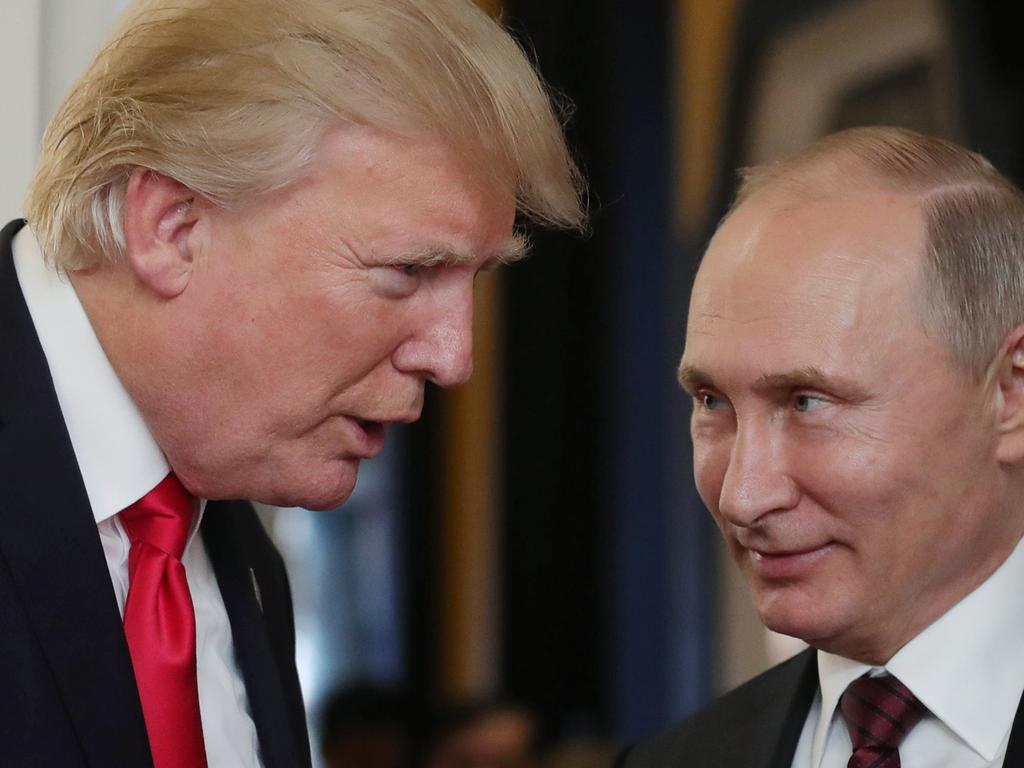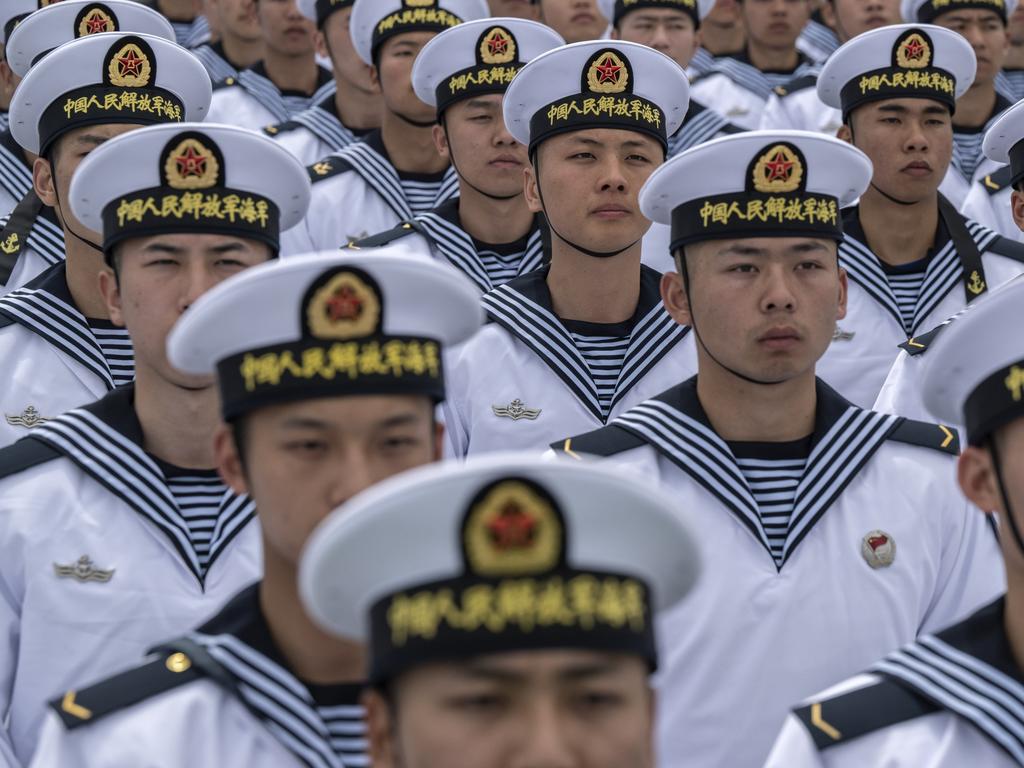Polish PM’s inconvenient truth: Europe is more powerful than Russia
I have never been a Trump conservative, but I can see his point that allies should do more with respect to their own security. Why do we have such a lack of belief in our own strength?

Just when it seemed that President Donald J. Trump had embraced the “give peace a chance” paean of the 1960s left, the Prime Minister of Poland spoke an inconvenient truth.
Last weekend, Donald Tusk said this: “The paradox is that 500 million Europeans are asking 300 million Americans to defend them against 140 million Russians.” He made the comment after a report by the International Institute for Strategic Studies revealed that Europe, along with Ukraine, had twice as many fighter jets as Russia and more than double the number of soldiers, along with an overwhelming majority of artillery weapons.
Sure, Russia is a nuclear power. But so are Britain and France.
Moreover, the lesson so far of the three-year-long Russia-Ukraine war is that Russia’s air force and navy have performed poorly and President Vladimir Putin has seen fit to get troops from the communist dictatorship of North Korea to support Russia against Ukraine’s forces in the field of battle. As Tusk put it: “The issue is not numbers but a lack of belief in our own strength.”
Trump went to the November 2024 election expressing the view that the US allies should do more with respect to their own security. He has not changed his position since entering the White House for the second time, in January.
I have never been a Trump conservative. But I have always understood that he has widescale support in the US. Apart from retaining a significant number of traditional Republicans, Trump appeals to lower income and less formally educated Americans who feel they are neglected by many leaders in politics and the public sector. And his social conservatism has significant support.
However, I believe it was most unwise for the US President to call Volodymyr Zelensky, the democratically elected leader of Ukraine, a dictator.
During his recent visit to the White House, Zelensky made some errors. It would have made sense for him to accept publicly the Trump administration’s proposed deal allowing the US access to Ukraine’s mineral deposits.
This was the best form of security guarantee that Ukraine could expect in view of the administration’s opposition to what are called “forever wars”.
Zelensky has said the meeting was regrettable since “it did not go the way it was supposed to”. However, it is fair to comment that Vice-President JD Vance, in particular, and to a lesser extent the President himself, were unnecessarily confrontational at what was, in effect, a media conference.
Also, it should be remembered that Zelensky’s first languages are Russian and Ukrainian, not English. When Trump is attempting to play “the art of the deal” on the world stage, it’s very difficult to guess what the result may be.
However, already some damage has been done to Western democracies.
Trump’s decision to pause both military supplies and intelligence sharing to Ukraine in the middle of a war that Putin’s Russia started is a reminder that the US is not always a reliable security partner.
Sure, the US, during the presidency of Democrat Woodrow Wilson, in April 1917 joined World War I. But US forces made little impact on the field of battle in the defeat of Imperial Germany.
Democrat president Franklin D. Roosevelt went to the November 1940 presidential election with a promise that “American boys are not going to be sent to any foreign wars”. In the event, the US entered World War II after its navy was bombed by Imperial Japan at Pearl Harbor on December 7, 1941. Nazi Germany declared war on the US four days later.
If Winston Churchill’s Britain – with the support of the Commonwealth nations – had not prevailed in the Battle of Britain in mid-1940, Adolf Hitler would have been victorious in Europe while the US was a neutral power.
It’s true that, so far at least, the US has left its armed forces in place in Japan (since the end of World War II in August 1945) and South Korea (since the start of the Korean war ceasefire in July 1953) to protect both nations from China and the Soviet Union (now Russia).
However, it’s the 50th anniversary in April this year of when the US made an undignified exit from Saigon, the capital of former non-communist South Vietnam. South Vietnam fell to communist North Vietnam whose military weapons were supplied by the Soviet Union and, to a lesser extent, China.
Hanoi prevailed after US ground forces finally left South Vietnam in March 1973. Saigon fell on April 30, 1975, after the US congress refused to continue to give the Saigon administration military weapons.
The lesson is that the US may – or may not – be a reliable ally. It would seem that after being complacent about national security for many decades, most European nations are awakening to the realisation that they cannot rely on the US for security.
This should have been evident as recently as the first Trump administration’s decision to negotiate with the Taliban for its return to power in Afghanistan and the Biden administration’s chaotic exit from that nation.
During the remaining almost four years of the Trump administration and beyond – whether the Republicans or Democrats are in office – it makes sense for Australia to assume that it may have to rely on itself so far as security is concerned.
This is despite the fact the US and Australia have mutual interests concerning the sharing of intelligence facilities and access to Australia’s ports, airfields and military training opportunities.
Through the years, this argument has been put forcefully by two civilians: BA Santamaria, who published The Defence of Australia in 1970; and Hugh White, who wrote How to Defend Australia in 2019. The difference between the two is that Santamaria was a supporter of the Australia-US Alliance while White says Australia should look elsewhere for its security.
What the two have in common is consistent with the view of Poland’s Prime Minister that nations should be prepared to ensure their own security.
Gerard Henderson is executive director of The Sydney Institute.






